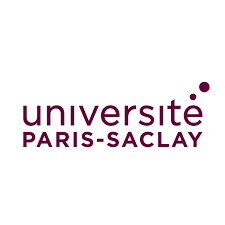-
Chemistry - Materials
-
Complex systems and software engineering
-
Energy, Ecology, Environment
-
Quality of life - Health - Food
Molecular Science Institute of Orsay (ISMO)
Research unit
The Molecular Science institute of Orsay (ISMO) is known for its excellent research in molecular physics, nanosciences and biophysics. Their expertise rely mainly on three experimental approaches: the combination of optic lasers and mass spectrometer in order to study molecular spectroscopy and dynamic, atomic resolution local probe techniques, and confocal microscopy, combining theoretical and experimental research. The institute develops instruments and expertise leading to applications in scientific instrumentation and in the biomedical sector.
Innovation themes
- Energy, Ecology, Environment
- Instrumentation, electronics, robotics and cobotics
- Complex systems and software engineering
- Software design, big data, cloud, high performance computing
- Modelling and simulation
- Quality of life - Health - Food
- Medical equipment (biophotonics, radiation, etc.)
- Chemistry - Materials
- Photonics - optical materials, application nanotechnology
- Green chemistry
- Organic (heavy, fine)
- Physical chemistry (electrochemistry, thermochemistry...)
- Therapeutic technologies (drugs, genetics, biomarkers, biomolecules, etc.)
- New energy sources and production system
Bâtiment 520, Faculté des Sciences, Université Paris - Saclay
91405 ORSAY
Expertises
- chemical reactivity
- surface molecules: nano-structuration, functionalization, reactivity
- nanostructures for molecular electronic, nano-optic, plasmonic
- biosystems: highly resolved microscopy, from tissue and cellular models to in vivo applications, photobiology and early diagnosis by optical path, biofilms and antibiotics resistance, transport and target of drugs, particle therapy
Applications sectors
- Health / wellness
- Electronic / photonics
Total number of employees
Number of researchers : 85
Number of doctoral students : 35
Equipment(s) open to collaboration
Mecanic: numerical control machines
Cryogenics: cryostat with liquid He, STM with liquid He.
Vacuum techniques: ultravacuum tunnel equiped with a panoply of techniques for surface analysis.
High resolution Fourier Transform spectrometer
Mass spectrometer coupled to laser spectroscopy
Photoelectron spectroscopy
STM and AFM microscopy
Fluorescence microscopy, highly resolved microscopy
Devices on big instruments : MAIA, CIEL, (SOLEIL, ATTOLAB), IR platform on AILES line at SOLEIL
Carbonated material sources (Nanograins)
Keywords
- quantum physics
- physical chemistry
- photochemistry
- spectroscopy
- small molecular systems
- molecular building blocks
- chirality
- laser
- biophysic
- biomedical
- theranostics
- bacterial medium
- nanosciences
- nanostructuration
- plasmonic
- modelling
- molecular and quantum dynamic
- time-dependent theoretical methods
- interstellar environment
- planetary atmosphere
Valuation offer
High resolution microscopy
Anti-bacterial processes and materials
Projects examples
High resolution XUV laser.
Multitechnical ultra-vacuum tunnel for nanostructures and nano-objects characterization.
Vibrationnal dichroism
Highly resolved microscopy
Graphene and silicene
Plasmonic: theory and experience
Use of nanoparticles and particle therapy for improvement of anti-cancerous treatments: cage molecules, target
Optical diagnostics in medecine
Industrial and scientific relations
Scientific collaborations
France : Université Paris-Saclay, LPMC, Université Nice INRA (Jouy-en-Josas), INSP Paris 6, Soleil, OPT2X, CEA Saclay, LCPQ (Toulouse), LPCME (Nancy)
-Europe : Université de Liège (Belgium),
King's College (London), University of Genova (Italy)
University of Modena (Italy), Autonomous University of Madrid (Spain), Laserlab-Europe, Université Gottingen (Germany), Université de Vilnius (Lituania)
Université de Varsovie (Poland)
International :
RIKEN (Japan), MANA, NIMS, Tsukuba (Japan)
INIFTA (Argentina), Bariloche Atomic Centre (Argentina), Université F. Santa Maria (Chile), Université de Chile (Chile), Indian Institute of Science (India), Jawaharlal Nehru Centre for Advanced Scientific Research (India)
Private collaborations
-collaboration with several industrial companies and start-up: Michelin, VitaDX
- creation of Abbelight: start-up generated from the laboratory
Establishments of affiliation
